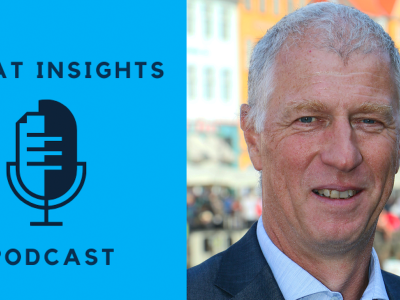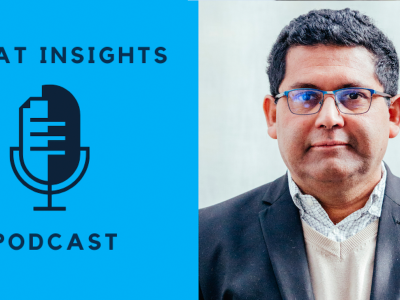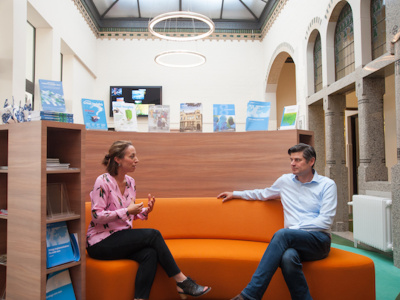
With the right investments, we can transform food systems
Food systems can reduce inequality and sustain livelihoods for millions of people, but only if we produce food within our planet’s boundaries, make the right investments and create an inclusive and enabling environment for small-scale farmers in the agricultural sector.
A triple crisis
The world is currently facing a triple crisis of hunger, climate change and energy access. Hunger has been rising for several years. In 2020 alone, 768 million people went to bed hungry. The situation was already dire before the COVID-19 pandemic, due to conflict and climate change. The additional stress of the global health emergency has magnified the vulnerability of our food systems and pushed millions more into hunger.
The majority of small-scale farmers in Africa rely on rainfed production, despite low levels of productivity. The devastating impact of climate change on these producers’ activities is a growing concern globally. As weather conditions become more variable and droughts, floods and cyclones grow increasingly frequent, farmers are less and less assured of a harvest. In addition, the environmental footprint of agriculture, and food systems more broadly, is now an urgent concern.
Energy access for all
There has been progress in the energy sector, especially in the domain of renewables. However, the goal of energy access for all remains elusive. In sub-Saharan Africa, 570 million people lack electricity, and 900 million people lack access to clean cooking facilities (IREA 2021). Challenges related to the energy sector cost Africa an estimated 2-4 percent of its annual gross domestic product (GDP). This undermines sustainable economic growth, job creation, investments, well-being and health.
Resetting agrifood systems
Traditionally, investments in agriculture have been driven mainly by public and bilateral actors. Over the last decade, we have seen substantial change in the sustainable development finance landscape. There are more types of financing instruments available. We now have crowdfunding, bonds, loans, guarantee schemes, equity schemes, challenge funds, grants, incubators, accelerators, carbon markets and payment for environmental services.
These days, there is also a wider range of investors funding agriculture, including multilateral and international financial institutions, the private sector, impact investors and philanthropists. The private sector plays a dual role in the agrifood system: as an investor and as an operator. Private sector actors manage the bulk of storage facilities, warehouses, cold chains and logistics. These are key in facilitating the movement of products from farms to markets. As an investor, the private sector provides some US $15 billion annually for the Global South. This finance can de-risk investments in agricultural innovation and make sustainable development finance more accessible to small-scale farmers.
The COVID-19 pandemic has demonstrated the vulnerability of our food systems to disruptions of supply and distribution chains, closures of markets and the emergence of transboundary pests and diseases. The pandemic has underscored how constrained the agricultural sector remains by the agency limited capital available to it. It also offers investors in the sector an opportunity to redefine how, in what and where they invest.
The way forward
There are several paths forward to take advantage of the opportunity in front of us and reset food systems.
- Forge and leverage partnerships. Transforming food systems can only be done through partnerships. We need to bring together different investors, including small-scale farmers. This helps us to “crowd in” investments and come up with the blend of finance required to fund national research systems and de-risk private investment, especially for local investors.
- Redefine parameters for investment decisions. Investors make investment decisions based on parameters such as time to impact, scalability, additionality, sustainability, country context, cost-benefit and risk management. Unfortunately, only 7 per cent of investments in innovation for sustainable agriculture intensification include environmental and social objectives. This harms our food systems. By including such parameters, we can ensure that investments in food systems are inclusive, create jobs and incentivise communities to safeguard biodiversity.
- Redefine areas for investment. Most investments in agriculture focus on seeds and technologies as the key pathway to increasing productivity for small-scale farmers. Unfortunately, with the adverse effects of climate change, these investments will fall short. Financiers, therefore, need to broaden their investment focus, to include areas like water use efficiency, renewable energy and land-use patterns, to safeguard and promote nature-positive outcomes.
Call to action
Agriculture and food systems have the potential to lift millions of people out of poverty. But our current food systems are failing us. We need to transform them, to create decent jobs and provide inclusive and equitable livelihoods. With concerted action, we can reset food systems to make healthy diets affordable to the people who work within food systems and agriculture.
To achieve this, the upcoming United Nations Food Systems Summit and COP26 need to define game-changing solutions that are action-oriented and that enable us to produce food within planetary boundaries. For Africa, we need to localise food systems and rebalance agency in them, putting the voices of small-scale farmers at the heart of the transformation and regoverning markets to ensure decent jobs in readiness for the Africa Continental Free Trade Area.
About the author
Sara Mbago-Bhunu is the Director of the Eastern and Southern Africa Division of the International Fund for Agricultural Development (IFAD). Mbago-Bhunu holds a Masters in Business Administration from Maastricht School of Management, Netherlands, and a BSc in Agricultural Economics from the University of Reading, United Kingdom.
Twitter | Website
Read the full magazine issue
This article appears in the climate edition of ECDPM's Great Insights magazine – check out the full issue or the other articles and multimedia below.















